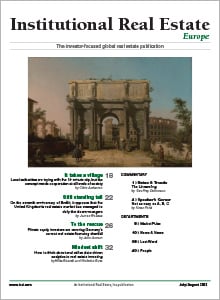The unraveling: Distress in the market — and what to do about it
The long bull market we have all been profiting from finally appears to be unravelling. But a bigger concern is the health of the overall global financial system. Back in 2008, governments around the world spun their printing presses and pumped trillions of fresh capital into the system in order to rescue it. And it worked. It stemmed the bleeding, as Band-Aids often will. But that’s all they were — Band-Aids. The root problems plaguing the industry have not been addressed. Real estate transactions remain private, while the risk associated with financing assets continues to be transferred onto investors, depositors and taxpayers. What is needed is a national — perhaps even a global — database of commercial and residential real estate loans.
